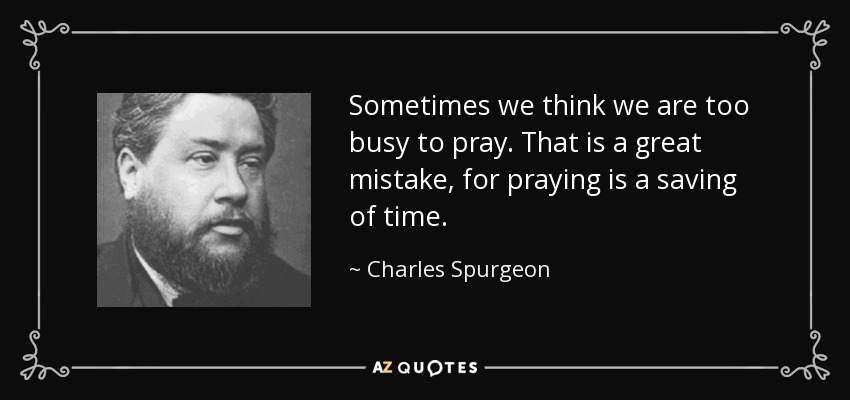Time is precious, because there's never quite enough to go around -- at least not when we're trying to achieve our goals while also meeting the needs of friends and family, as well as the responsibilities of work, government, and community. So, here are two more tips for maximizing your time.
- Keep notes and make lists.
 It’s hard to remember what needs to be done — and when — if you never write it down. Maintain a few lists to help remind you of things you need, projects you should be working on, pressing responsibilities and deadlines. Don’t trust “stuff” to memory — our brains can hold only so much; instead, WRITE IT DOWN!
It’s hard to remember what needs to be done — and when — if you never write it down. Maintain a few lists to help remind you of things you need, projects you should be working on, pressing responsibilities and deadlines. Don’t trust “stuff” to memory — our brains can hold only so much; instead, WRITE IT DOWN!
For example, we always keep a shopping list in the kitchen. It’s a long notepad with a nifty little magnet on the back, which allows us to post it on the refrigerator door. We frequently update this list whenever we notice we’re getting low on sugar or milk, etc. We learned a long time ago that if we don’t write it down while we’re thinking about it, we tend to forget it altogether. But when we shop for groceries we want to make it count: we  don’t want to come home without everything we needed. So before we go to the market, we grab our list containing all the stuff we jotted down during the week. Because nothing is more aggravating than coming home, putting away the groceries, and then starting dinner — only to realize we FORGOT the oregano for the spaghetti sauce!
don’t want to come home without everything we needed. So before we go to the market, we grab our list containing all the stuff we jotted down during the week. Because nothing is more aggravating than coming home, putting away the groceries, and then starting dinner — only to realize we FORGOT the oregano for the spaghetti sauce!
Lists help us to live efficiently. And keeping a list of things to do is not only smart, it’s also Godly. Even our Heavenly Father has His own list — and He keeps close track of it, jotting down our names, so that He will never forget us: God reminds us, “…I have written your name on the palms of my hands.” (Isaiah 49:16 NLT)
“[Lord] You keep track of all my sorrows. …You have recorded each one in Your book.” (Psalm 56:8 NLT)
We suggest keeping a notebook handy. Jot down things you need to accomplish each day. In the morning, following your Quiet Time with the Lord, compose a “To Do List.” Include these categories: job responsibilities and deadlines; household chores; social needs and obligations (family, friends, community); steps you wish to accomplish concerning your  personal dreams and goals. Then prioritize the items on your list.
personal dreams and goals. Then prioritize the items on your list.
Don’t be “listless”! Keeping one or more lists of your needs, goals, and responsibilities will remind you of your duties, keep you on track, and give you peace of mind. Lists allow you to keep your mind organized and free of clutter. Write it down — and you won’t have to stress yourself with trying to remembering it, or having to juggle it with a thousand other thoughts! Lists also facilitate multitasking.
- Multitask!
Efficient, time-conscious people have learned to work two or more jobs simultaneously. NO! We’re not advocating texting while driving! But if you are driving into town, check your list: make the trip count, by arranging and scheduling other things you can accomplish while you’re out. The last thing you want is to waste time.
 Other examples of multitasking: doing the laundry while writing; listening to a recorded teaching while cooking; catching up with friends by phone, while trimming the hedges, etc. And, if you suddenly find yourself waiting, seemingly with nothing to do, you can pull out your “Things To Do” list. Chances are you have calls to make, a bill you can pay on your phone, etc. — or you can spend the time updating your list!
Other examples of multitasking: doing the laundry while writing; listening to a recorded teaching while cooking; catching up with friends by phone, while trimming the hedges, etc. And, if you suddenly find yourself waiting, seemingly with nothing to do, you can pull out your “Things To Do” list. Chances are you have calls to make, a bill you can pay on your phone, etc. — or you can spend the time updating your list!
One last point on time-management: Lists and schedules, organization and “clutter cutting” are intended as tools to help creators and dreamers achieve their goals. But we should never become so rigid in our thinking as to allow these tools to control our lives. Be disciplined, but be balanced also. Allow God to guide you in all things. Time is our friend, NOT our master! Which brings us to the most important time-management tool:

- Never get too busy to spend time with God.
Among a multitude of duties, the Great Reformer, Martin Luther, wrote his history-changing thesis, composed scores of hymns and catechisms, and even found time to translate the Holy Scriptures from Latin. He was quite the busy fellow, and yet, Luther once stated, “I have so much to do today that I’m going to need to spend three hours in prayer in order to be able to get it all done.”
 It sounds crazy, but scheduling quality time with your Heavenly Father every morning will actually help you to get more done during the day — and accomplish far more in life. Seeking God in all things is truly supernatural in the way it bends time to God’s will:
It sounds crazy, but scheduling quality time with your Heavenly Father every morning will actually help you to get more done during the day — and accomplish far more in life. Seeking God in all things is truly supernatural in the way it bends time to God’s will:
“Take my instruction…. Counsel is Mine and sound wisdom; I am understanding; power is Mine. …I love those who love Me; and those who diligently seek Me will find me. Riches and honor are with Me, enduring wealth and righteousness. My fruit is better than gold … and My yield [increase] better than choicest silver.” (Proverbs 8: 10, 14, 17-19 NASB)
Join us next time, for “Have a Plan.”



 in life is to identify the problem … and when and where it occurs.
in life is to identify the problem … and when and where it occurs. average, people watch 6 to 8 hours of TV per day. No wonder we know the words to all those advertising jingles! Of course, not everyone is glued to the Telly. Some of us are wired to our computer tablets and phones: the same studies report that the average person spends 4 to 7 hours on the Internet! Imagine how much could be accomplished each day if we limited the time leaking — actually, GUSHING — through these and similar “cracks” in our schedules!
average, people watch 6 to 8 hours of TV per day. No wonder we know the words to all those advertising jingles! Of course, not everyone is glued to the Telly. Some of us are wired to our computer tablets and phones: the same studies report that the average person spends 4 to 7 hours on the Internet! Imagine how much could be accomplished each day if we limited the time leaking — actually, GUSHING — through these and similar “cracks” in our schedules! efficiently. Schedules are lists (of appointments, functions, services, activities, and responsibilities), their designated times, and often of their durations. Trains and planes run on schedules, which prevents chaos and maximizes productivity. Doctors use schedules to arrange appointments, and … well, let’s move on.
efficiently. Schedules are lists (of appointments, functions, services, activities, and responsibilities), their designated times, and often of their durations. Trains and planes run on schedules, which prevents chaos and maximizes productivity. Doctors use schedules to arrange appointments, and … well, let’s move on. Organized people know well in advance what needs to be done, how long it will take, how to go about doing it, and when to get started. And they are disciplined in regards to adhering to their self-imposed schedules. Hence, they always have an objective, a clear goal. They avoid confusion and get more done in less time, while others appear to wander about aimlessly, while accomplishing very little.
Organized people know well in advance what needs to be done, how long it will take, how to go about doing it, and when to get started. And they are disciplined in regards to adhering to their self-imposed schedules. Hence, they always have an objective, a clear goal. They avoid confusion and get more done in less time, while others appear to wander about aimlessly, while accomplishing very little.